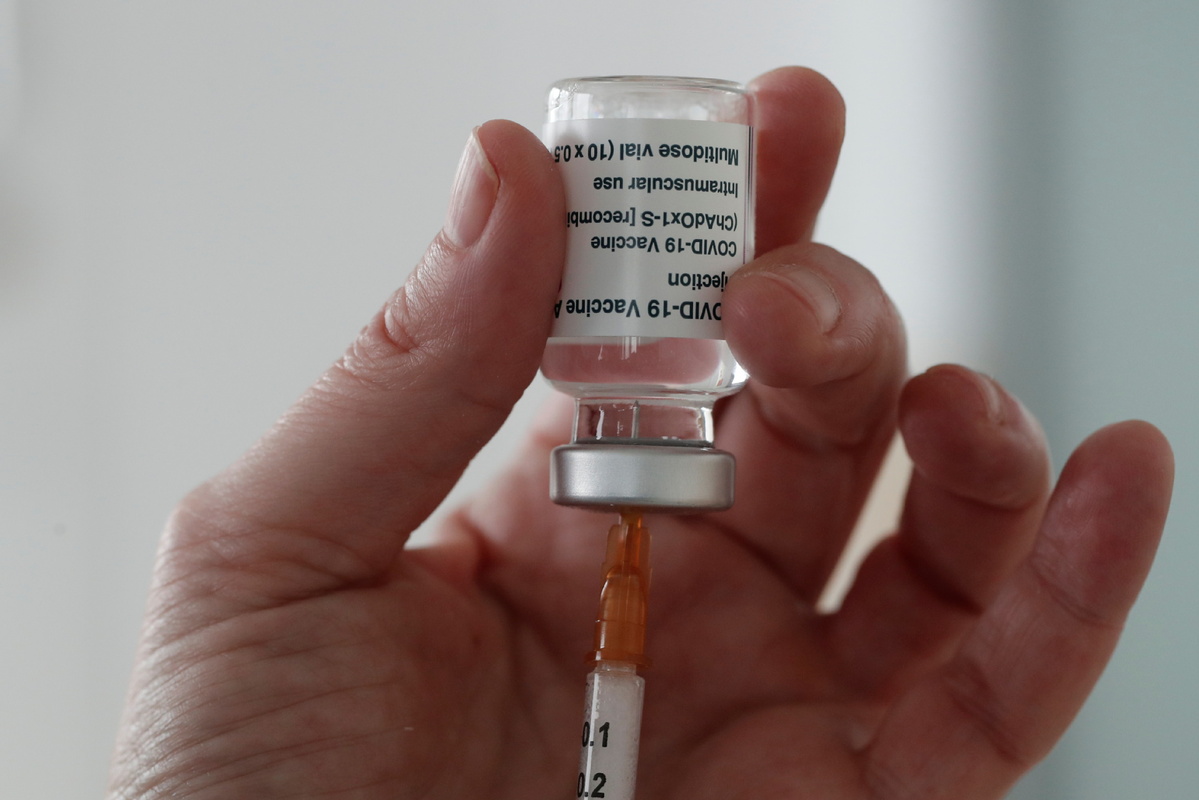WHO expresses concern about risk mutations pose to vaccines


The World Health Organization expressed concern on Monday about news that the Oxford/AstraZeneca vaccine may only be minimally effective at preventing mild-to-moderate COVID-19 caused by a variant of the novel coronavirus first identified in South Africa.
The finding prompted South Africa to announce on Sunday that it was putting a temporary hold on its rollout of the vaccine.
The Oxford/AstraZeneca vaccine is one of several that has been shown to be effective in preventing severe disease, hospitalization, and death from COVID-19, according to the organization, which is also known as the WHO.
Director-General Tedros Adhanom Ghebreyesus said the emergence of new variants of the virus has raised questions about the potential impact of those variants on vaccines.
"This is clearly concerning news," he said during a virtual news conference.
But he said there are some important caveats.
Given the limited sample size of the trial that appears to show less than full protection against the strain, and the younger, healthier profile of participants, it is important to determine whether or not the vaccine remains effective in preventing more severe illness, he said.
He added that the results are a reminder that people need to do everything they can to limit the spread of the virus through proven public health measures.
"We all have a role to play in protecting vaccines," he said. "Every time you decide to stay at home, to avoid crowds, to wear a mask or to clean your hands, you are denying the virus the opportunity to spread, and the opportunity to change in ways that could make vaccines less effective."
Tedros suggested that manufacturers will have to adjust to the evolution of the virus and take into account the latest variants for future jabs, including boosters.
"We know viruses mutate and we know we have to be ready to adapt vaccines, so they remain effective," he said, adding that it is what happens with flu vaccines, which are updated twice a year to match dominant strains.
The WHO said it has an existing mechanism for tracking and evaluating variants of the virus that causes COVID-19.
Tedros said it is vital that countries continue to report variants to the WHO, so it can coordinate global efforts to monitor their impact and advise countries accordingly.
"We're now expanding that mechanism to provide guidance to manufacturers and countries on changes that may be needed for vaccines," he said.
The WHO chief emphasized that the developments highlight why it is important to scale up manufacturing and rollout of vaccines as quickly as possible and as widely as possible, so people can be protected before they can be exposed to new variants.
Meanwhile, a WHO team is in China to examine a facility operated by Sinovac and Sinopharm, as well as to look at their dossier and data, to see whether their products are suitable for the COVAX initiative, which aims to develop and manufacture vaccines and make them accessible to poor countries.
The WHO's chief scientist, Soumya Swaminathan, said on Monday the organization wants to work with developers and manufacturers of vaccines all over the world.
She said China has several vaccines under development and the WHO is talking with the organizations behind all of them. She added that Sinovac and Sinopharm and willing to discuss with the COVAX facility the idea of initially offering 10 million doses of vaccine during the coming months.
"So, we are very encouraged by that," she said.

































